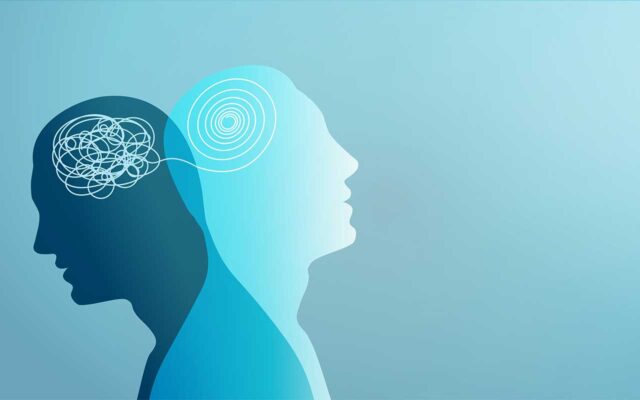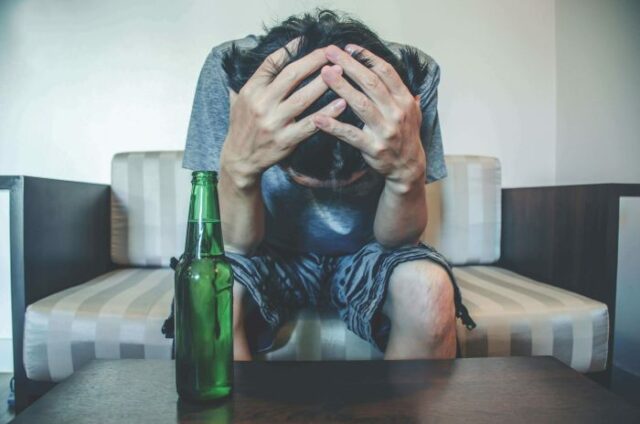
Drinking alcohol has become a part of social culture in the UK. People drink to celebrate, mourn or just chill out with friends. In moderation, alcohol does not cause any severe problems. You might get a hangover, an upset stomach or diarrhea. And that’s where the pain will end.
But when drinking alcohol becomes more than a pastime, the real problem begins. And, if excessive alcohol consumption takes place alongside a severe mental illness, things can become extremely dangerous for the addict.
In medical terms, such a cooccurrence is termed a dual diagnosis – the presence of alcoholism alongside a mental health disorder like anxiety, bipolar disorder or depression. To know more visit Sanctuary Lodge Rehab Centre.
Why Is Dual Diagnosis Much More Dangerous than Alcoholism?

Alcoholism causes people to lose control and puts them in a dire situation from which they don’t know how to get out. However, most alcoholics (who are young and had normal health before becoming an addict) still have time on their side. Eventually, many alcoholics find the support that they need and get back on their feet. However, when discussing dual diagnosis, time is not a friend.
When a person with bipolar disorder or depression starts abusing alcohol, their mindset changes completely. They are more likely to indulge in dangerous behavior that can cut their life short drastically.
For instance, they might excessively drink while driving or start having suicidal thoughts. When inebriated, a person experiencing a mental health disorder can act in unimaginable ways that can seriously jeopardize their lives and those of the ones they love.
Factors that Impact Dual Diagnosis Treatment

Dual diagnosis treatment is way trickier than treating a single problem. There are many factors that impact the success of a treatment program:
1. Environmental Factors
Many environmental factors go unnoticed when it comes to evaluating the success of a dual-diagnosis treatment program. At times, people who suffer from such disorders live in places with a high crime rate, which indirectly impacts their psyche. Some feel depressed and take to alcohol or drugs to counteract the adverse psychological effects that they are experiencing.
Similarly, many other environmental factors, like geographical factors, dictate the success rate. For instance, if the region in which the mental health facility is located is far away from the location of a patient, they are more likely to quit treatment midway.
2. Internal and External Factors
Many studies have indicated the presence of a common theme that points to whether the treatment of a said patient will be successful. Both external and internal factors play a major role in determining a patient’s victory or loss in their fight. External factors include a traumatic event and the presence of negative and addicted individuals in the friend circle.
Internal factors include a negative mindset and a disdain for life. According to studies, it is vital to identify the relevant factors and address the root cause of the problem. Psychologists are needed to ascertain the exact causes. Once identified, treating patients with a dual diagnosis becomes easier.
3. Barriers to Treatment Based on Gender
As women are stigmatized more than men for their addictive behaviors, they are more reluctant to undergo dual disorder treatment. But studies indicate that when provided the proper treatment, women patients have a better recovery rate than their male counterparts.
How to Treat Alcoholism and Mental Illness Together?

Treating dual diagnosis requires a combined approach that simultaneously addresses both the substance use disorder and the mental health disorder. This approach is essential because treating one disorder without addressing the other can result in a relapse of either condition.
Stage 1: Assessment and Diagnosis
During this stage, a mental health professional will conduct a comprehensive evaluation to determine the severity of the substance use disorder and the type and severity of any co-occurring mental health disorders. This assessment will help to determine the most appropriate course of treatment.
Stage 2: Detoxification of Alcohol from the Body
Detoxification involves removing alcohol from the body and managing withdrawal symptoms. In alcohol rehab, detoxification is typically conducted in a medical setting, as withdrawal from alcohol can be dangerous. In addition, medications may be used to help manage withdrawal symptoms and cravings.
Stage 3: Stabilization

During this stage, the individual will receive treatment for both alcoholism and mental health disorder. This may involve medication, therapy, and support groups. The goal of stabilization is to help the individual manage their symptoms and achieve a stable state of recovery.
Stage 4: Rehabilitation
It involves intensive therapy and support to help individuals develop the skills and coping mechanisms needed to maintain sobriety and address their mental health disorders. Rehabilitation may include individual therapy, group therapy, family therapy, and support groups such as Alcoholics Anonymous or Narcotics Anonymous.
In addition, top alcohol rehabs have expertise in ground-breaking therapy techniques like CBT (Cognitive Behavioural Therapy), DT (Dialectical Therapy) and 12-step programs, which are known to produce positive results during dual diagnosis treatment.
Stage 5: Maintenance and Support
This stage involves ongoing treatment and support to help individuals recover and manage their mental health disorders. Maintenance and support may involve regular therapy sessions, medication management, and participation in support groups. In addition, many mental health and addiction rehabs offer alumni programs to keep former addicts on track throughout their lives.
In these rehabs, after the treatment is done and the patient is deemed free of addiction and cured of the mental illness, they are enrolled in an alumni program where they frequently engage with the rehab. As a result, they are constantly reminded to stay away from alcohol and receive the necessary positive stimulus to live a happy life.
Final Thoughts

Drinking alcohol can be fun when it is done in moderation. However, when alcohol is abused, and the person overconsuming alcohol also has a mental illness, things can take a turn for the worse.
A lack of mental health and addiction to alcohol is a disaster waiting to happen, so it is crucial to enroll in an alcohol rehab that specializes in treating dual disorders. With a step-by-step approach, top rehabs can help you eliminate the problem and prevent a relapse.












